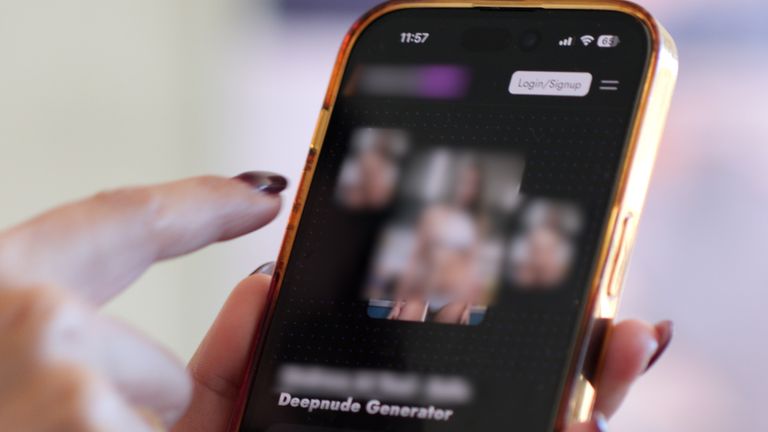Crackdown promised on creators of sexually explicit deepfakes and intimate images without consent
The move is part of a package of laws being introduced in relation to sexually explicit images after victims minister Alex Davies-Jones said one in three women had been subjected to online abuse.

Perpetrators who create sexually explicit “deepfakes” of adults could be prosecuted under new laws being introduced to help protect women and girls.
It is already illegal for such images to be created of children, but the law is now set to cover those over 18 after the Ministry of Justice said the “proliferation” of these “hyper-realistic images” has been growing at an “alarming rate”.
Deepfakes are images that have been edited or altered to create a realistic portrayal of a moment that didn’t take place.
They are usually created using artificial intelligence tools which respond to a prompt by the user.
Both those who create and share sexually explicit deepfake images could be charged under the new law that is set to be introduced.
The government has not yet revealed what sentences those found guilty of the offences could face.
The Labour government had promised in its 2024 general election manifesto that it would make it illegal to create sexually explicit deepfake images.
The move is part of a package of laws being introduced in relation to intimate images after victims minister Alex Davies-Jones said one in three women had been victims of online abuse.
Under the fresh laws, the capturing of intimate images without consent will be punishable with a prison sentence of up to two years.
It is already an offence to share, or threaten to share, an intimate image without consent. However, it is currently only a crime to take an image without consent in certain circumstances such as upskirting.
Meanwhile, a new law will also mean those who install equipment with the intent of capturing intimate images without consent could face up to two years in prison.
Ms Davies-Jones said: “It is unacceptable that one in three women have been victims of online abuse.
“This demeaning and disgusting form of chauvinism must not become normalised, and as part of our plan for change we are bearing down on violence against women – whatever form it takes.
“These new offences will help prevent people being victimised online. We are putting offenders on notice – they will face the full force of the law.”
The new laws will be included in the government’s crime and policing bill but a date has not been set for when they will be introduced.
Read more:
AI driving ‘explosion’ of fake nudes
Warning to UK politicians over risk of audio deepfakes
Deepfake images of Taylor Swift circulated
‘It was like looking at me’
Last year, social media influencer and former Love Island contestant, Cally Jane Beech, 33, was horrified when she discovered someone had used AI to turn an underwear brand photograph of her into a nude and it was being shared online.
The original image had been uploaded to a site that uses software to digitally transform a clothed picture into a naked picture.
She told Sky News: “It looked so realistic, like nobody but me would know. It was like looking at me, but also not me.”
She added: “There shouldn’t be such a thing. It’s not a colouring book. It’s not a bit of fun. It’s people’s identity and stripping their clothes off.”
When Ms Beech reported what had happened to the police, she struggled to get them to treat it as a crime.
“They didn’t really know what they could do about it, and because the site that hosted the image was global, they said that it’s out of their jurisdiction.”



